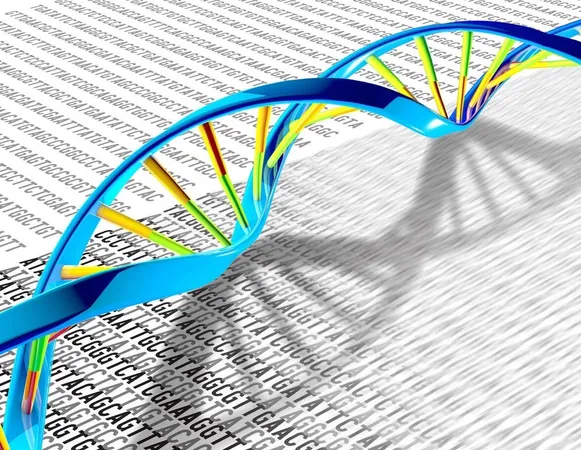
Revolutionary Study Dismisses Cancer-Microbiome Links: What You Need to Know!
2025-09-04
Author: John Tan
Groundbreaking Findings Challenge Previous Claims
In a surprising twist, recent research from Johns Hopkins Medicine casts doubt on numerous past studies that linked various types of human cancer to microbiomes—complex communities of bacteria, viruses, and fungi residing within our bodies. Contrary to claims made in around a dozen studies over the past five years, the new findings indicate a significantly lower presence of microbial DNA in cancer tissues than previously reported.
A Scientific Deep Dive
Steven Salzberg, Ph.D., a leading figure in the study and a professor at Johns Hopkins, emphasizes, "Science thrives on validation and reproducibility. What we have found is a clearer picture revealing no substantial associations between microbiomes and many cancer types." The study, now published in *Science Translational Medicine*, meticulously analyzed whole genome sequences from 5,734 tissue samples across 25 cancer types stored in The Cancer Genome Atlas (TCGA). Half of these samples were healthy tissues and blood, and the other half came from solid tumors and blood-related cancers.
A Closer Look at the Data
The TCGA's vast dataset comprises millions of DNA fragments, known as reads. Initially aimed at identifying genetic mutations linked to various cancers, these reads also presented an opportunity to identify any microbial presence within the tumors. However, due to potential contamination from sequencing instruments and environmental factors, the research team undertook extensive efforts to isolate genuine microbial DNA from background noise.
Rigorous Contamination Safeguards
Salzberg's team implemented stringent controls by meticulously analyzing samples and cross-referencing them against two human reference genomes. They discarded overlapping human DNA sequences, eventually isolating around 2.4 million reads per cancer sample, which accounted for just 0.35% of their total dataset. This filtering process revealed microbial DNA proportions of 0.57% in solid tumors and 0.73% in blood cancers.
Disparities in Research Results
The Johns Hopkins team's results starkly contrast with an earlier study that was retracted due to contamination concerns, which reported 56 times more microbial reads for similar samples. Their analysis highlighted inconsistencies, indicating that previous findings likely resulted from contaminants rather than genuine microbial associations, amplifying earlier doubts about the connection between cancer and microbiomes.
What Did They Find?
While a range of microbial DNA was identified—such as HPV (linked to cervical cancer), Helicobacter pylori (linked to stomach cancer), and others associated with gastrointestinal cancers—the research also uncovered unwanted contaminants like baker's yeast and a virus previously linked only to plant fungi, aiming to underscore the critical need for accurate claims in this emerging field.
Implications for Future Research
As researchers increasingly consider microbiome analysis in cancer diagnostics, Salzberg stresses the importance of cautious documentation and validation of findings. The comprehensive data from this study is now publicly available, encouraging further investigation within the scientific community. Stay tuned as this story unfolds and shapes our understanding of cancer diagnostics!


 Brasil (PT)
Brasil (PT)
 Canada (EN)
Canada (EN)
 Chile (ES)
Chile (ES)
 Česko (CS)
Česko (CS)
 대한민국 (KO)
대한민국 (KO)
 España (ES)
España (ES)
 France (FR)
France (FR)
 Hong Kong (EN)
Hong Kong (EN)
 Italia (IT)
Italia (IT)
 日本 (JA)
日本 (JA)
 Magyarország (HU)
Magyarország (HU)
 Norge (NO)
Norge (NO)
 Polska (PL)
Polska (PL)
 Schweiz (DE)
Schweiz (DE)
 Singapore (EN)
Singapore (EN)
 Sverige (SV)
Sverige (SV)
 Suomi (FI)
Suomi (FI)
 Türkiye (TR)
Türkiye (TR)
 الإمارات العربية المتحدة (AR)
الإمارات العربية المتحدة (AR)